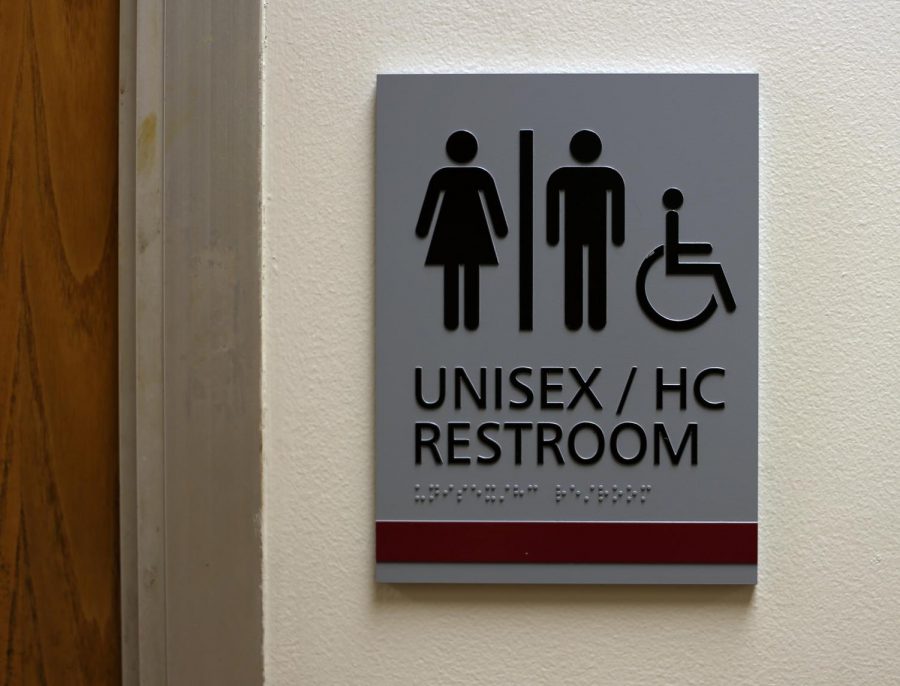A Massachusetts “bathroom bill” could become reality come this November.
No, really. The repeal of protections for transgender people will appear as a ballot question this year. And while the first question has received intense public scrutiny and debate, many people remain unaware of the third, which has a complicated legislative history. A “no” vote on this question will remove protections, and a “yes” vote will keep them. This is an important clarification for the most important issue this November.
In 2016, Massachusetts updated our non-discrimination statute to include protection for transgender individuals in public spaces. This bill prevents the expulsion of transgender people from everyday settings, such as restaurants and stores, but also from vital ones, like private hospitals, public transportation and doctors’ offices.
For two years, the law has reliably protected the safety and rights of transgender citizens — until now.
The self-described “Keep MA Safe” campaign opposed the bill from its inception, and eventually managed to get its repeal on the ballot. They believe emergency rooms aren’t the most important spaces to protect — bathrooms are.
The argument that transgender individuals want nothing more than to listen next to the stalls in the women’s room is a tired one. No study, statistics or police reports support this claim. None of the 18 states across the country with public nondiscrimination protections have reported an increase of sexual assault in bathrooms.
So how have groups like “Focus on the Family” managed to push forward bathroom bills across the country? Well, by using fear.
Similar votes across the country have followed a recurring narrative: a law protecting transgender individuals initially receives public support, but after attack ads paid for by a small, vocal group of objectors, support drops drastically and the bill fails. Voters tend not to fully research issues, and scare tactics on television often resonate more effectively than complicated, rational arguments. We can’t assume these strategies won’t work in Massachusetts.
Question number three is already the most contested on the ballot; according to the Suffolk University Political Research Center survey published in June, 49 percent of respondents would vote to keep the law, and 37 percent would repeal it, while 13 percent reported feeling ‘undecided.’
That 13 percent of voters will determine the outcome of this vote. If Massachusetts continues the pattern seen elsewhere, and baseless panic swings uninformed voters, we may become the first state to ever roll back nondiscrimination protections for transgender people via ballot.
Massachusetts was the first state to legalize same-sex marriage, the second to add sexual orientation to an anti-discrimination statute and the first to protect LGBT students. We have a continuous, enduring history of social progress and tolerance. Let’s not tarnish that reputation.
The repeal of public accommodations protections is a serious danger for many Massachusetts citizens, and must be treated as such. The lack of coverage it has received, frankly, is a disappointing reminder of the media’s priorities. Perhaps if organizations like “Freedom MA” had the same kind of money as lobbyists for private hospitals, it would appear more often in the news. Instead, the responsibility to inform the public falls on the shoulders of volunteers and local grassroots campaigns.
Over the summer, I volunteered with one such organization. Participants were encouraged on the first day to give the reason they joined. Some people had transgender family members — brothers, children, cousins. Others were transgender themselves. Many people, like me, were simply part of the community and wanted to offer support in solidarity. A few felt no personal connection to the issue, just a sense of moral obligation.
In that room, I saw the real face of Massachusetts: diverse, engaged and empathetic.
That is the Massachusetts I hope will win come November. If you write nothing else on the ballot this year, remember to vote yes on three.
Sarah Almstrom is a Collegian columnist and can be reached at [email protected].




















NITZAKHON • Oct 3, 2018 at 9:53 am
@Craig: Kind of ironic when you consider it was the DEMOCRATS who founded the Confederacy, who founded the KKK, who passed the Jim Crow laws, who passed the marriage license laws forbidding interracial marriage, who re-enslaved blacks through the “Great Society” with laws that encouraged promiscuity and destroyed the black family to create generations of dependents pulling the “D” lever in exchange for pellets and a cage…
Craig Fitzgerald • Oct 2, 2018 at 2:46 pm
Great article. I’m amazed that a question on discrimination is even on the ballot though. Similar backward thinking is used by those who want to make America great again; return to times when basic human rights weren’t afforded to everyone.